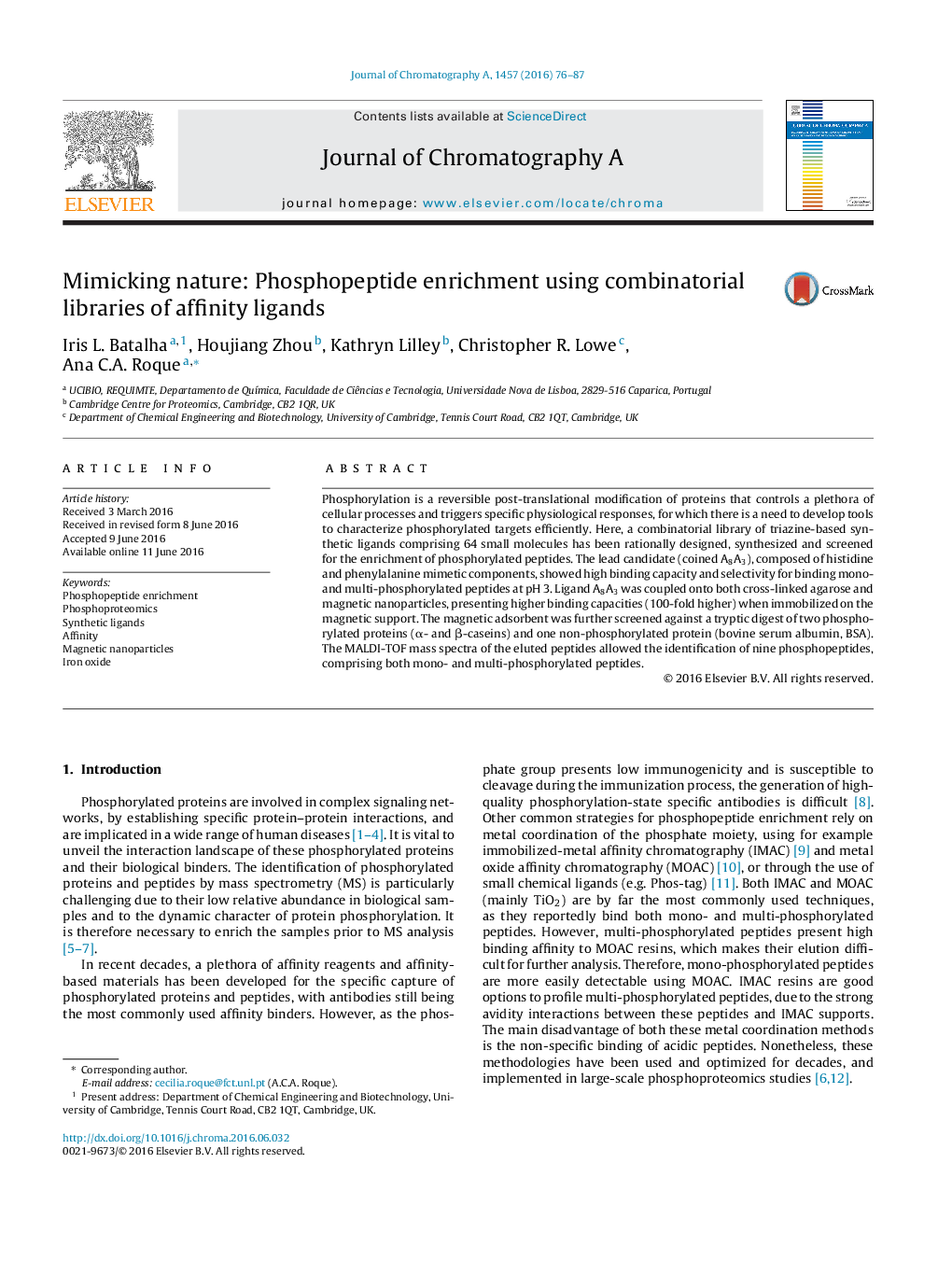| کد مقاله | کد نشریه | سال انتشار | مقاله انگلیسی | نسخه تمام متن |
|---|---|---|---|---|
| 1198663 | 1493469 | 2016 | 12 صفحه PDF | دانلود رایگان |
• High-throughput synthesis of biomimetic ligands for phosphopeptide enrichment.
• Triazine-based ligands synthesized and screened in situ on agarose and magnetic beads.
• Lead candidate presented His and Phe mimetic components.
• Selective capture of phosphopeptides from 6 pmol of a semi-complex protein sample.
Phosphorylation is a reversible post-translational modification of proteins that controls a plethora of cellular processes and triggers specific physiological responses, for which there is a need to develop tools to characterize phosphorylated targets efficiently. Here, a combinatorial library of triazine-based synthetic ligands comprising 64 small molecules has been rationally designed, synthesized and screened for the enrichment of phosphorylated peptides. The lead candidate (coined A8A3), composed of histidine and phenylalanine mimetic components, showed high binding capacity and selectivity for binding mono- and multi-phosphorylated peptides at pH 3. Ligand A8A3 was coupled onto both cross-linked agarose and magnetic nanoparticles, presenting higher binding capacities (100-fold higher) when immobilized on the magnetic support. The magnetic adsorbent was further screened against a tryptic digest of two phosphorylated proteins (α- and β-caseins) and one non-phosphorylated protein (bovine serum albumin, BSA). The MALDI-TOF mass spectra of the eluted peptides allowed the identification of nine phosphopeptides, comprising both mono- and multi-phosphorylated peptides.
Journal: Journal of Chromatography A - Volume 1457, 29 July 2016, Pages 76–87
